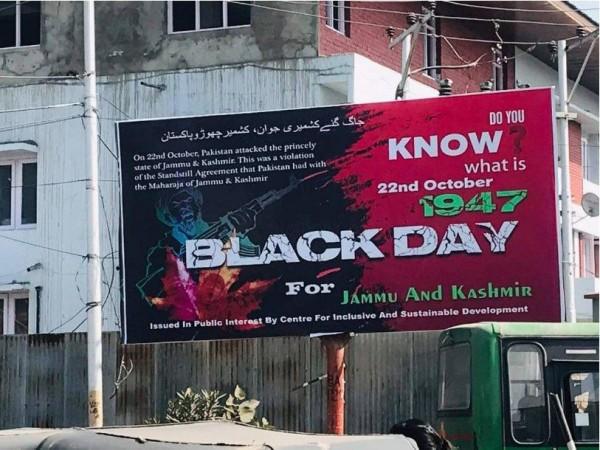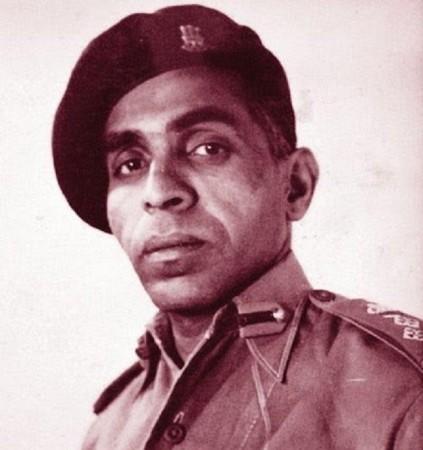Billboard with the title 'Do you know what is 22nd October 1947: Black day for Jammu and Kashmir' can be seen in the streets of Srinagar.
The Government of Jammu and Kashmir in collaboration with the National Museum Institute of History of Art, Conservation and Museology are observing 'National Symposium' on 22nd and 23rd October. The theme for this year's symposium has been set as "memories of 22 October 1947 (Black Day)."

An official statement from the organisers read, "A two-day symposium on 'Memories of 22 October 1947' proposed to be organised in Kashmir by the National Museum Institute will bring forth the historical narrative of 22 October 1947.
The symposium proposes to outline the shapes and contours of a future exhibition/museum on the proposed theme." So, what exactly happened on the fateful day of 22nd Oct 1947 that changed the relationship between India and Pakistan forever? Let's find out.
BLACK DAY
— ADG PI - INDIAN ARMY (@adgpi) October 22, 2020
On this day, Lashkars armed with axes, swords & guns backed by #Pakistan Army attacked Jammu & Kashmir. Unleashed atrocities on men, women and children. (2/n)#PakAtrocities #JammuKashmir1947#ThisDayThatYear pic.twitter.com/F2pF7MeVWw
Pakistan's mercenaries attacked Jammu and Kashmir
Soon after the independence, Pakistan lured Hindu Raja Hari Singh of Jammu and Kashmir having a dominant Muslim population join the country. But after Hari Singh rejected Jinnah's offer, Jammu and Kashmir was attacked by the tribal mercenaries supported by the Pakistani Army on 22nd October 1947.
'Hindu and Muslim population were butchered alike'
Pakistan's lie of protectors of Muslims also got exposed in this cowardly attack on J&K. When the Baramulla district was attacked by Pakistan backed militias, local people irrespective of their religious inclination were attacked and killed mercilessly. Pashtun tribesmen and Pakistani regular army soldiers resorted to rapes and looting, resulting in the complete chaos which Hari Singh could not contain.
'Hari Singh signed Instrument of Accession'
Desperate to save the capital city of Srinagar from Pakistan, Maharaja Hari Singh signed the Instrument of Accession to India on October 26, 1947. India airlifted its Army the very next day and routed Pashtun Tribal and Pakistan saving the capital city of Srinagar. Brigadier Mohammed Usman commanded 50th Para Brigade of the Indian Army and defenced the town of Nowshera against overwhelming odds which earned him the nickname of 'Lion of Nowshera'.

The officer lost his life in the defence of Jhangar and was later awarded the country's second-highest gallantry award, Mahavir Chakra. On his death, Khwaja Ahmad Abbas, then a renowned journalist wrote, "a precious life, of imagination and unswerving patriotism, has fallen a victim to communal fanaticism. Brigadier Usman's brave example will be an abiding source of inspiration for Free India"















